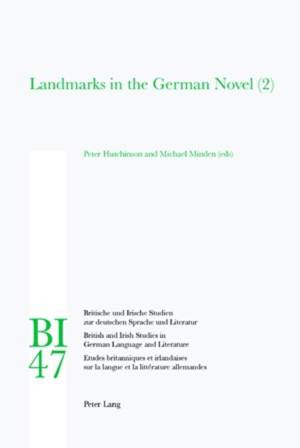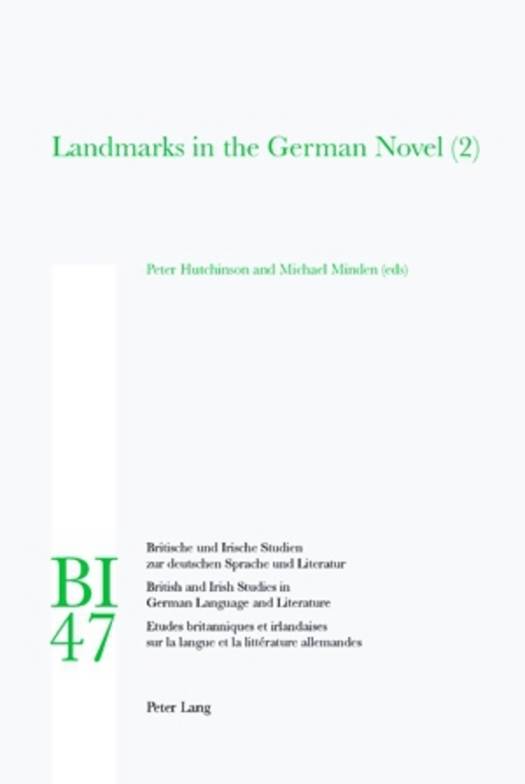
- Afhalen na 1 uur in een winkel met voorraad
- Gratis thuislevering in België vanaf € 30
- Ruim aanbod met 7 miljoen producten
- Afhalen na 1 uur in een winkel met voorraad
- Gratis thuislevering in België vanaf € 30
- Ruim aanbod met 7 miljoen producten
Zoeken
Landmarks in the German Novel (2)
€ 105,95
+ 211 punten
Omschrijving
The nine essays in this volume deal with major achievements in the German novel since 1959. They range from the very well known, such as Brussig's Helden wie wir, an extravagant treatment of life under the Stasi and the fall of the Berlin Wall, to the much more recondite, such as Hubert Fichte's Detlevs Imitationen Grünspan, one of the first, and most important, products of the abolition of the discrimination against gays in 1969. What is most surprising about this collection is that, in contrast to the majority of successful novels written in German before 1959, only one of these is by a clearly 'West' German author: Hubert Fichte. There is, by contrast, a surprising number who have their roots in the GDR (Plenzdorf, Wolf, Brussig, Schulze), or in Austria (Bachmann, Bernhard). This is also a period in which women writers emerge powerfully (Bachmann, Wolf, and Özdamar). Virtually all these novels aroused controversy in some quarters at the time of their publication, often for their treatment of semi-taboo, or at least uncomfortable, subject-matter.
These essays, all by specialists in the relevant field, were originally delivered as lectures in the University of Cambridge.
These essays, all by specialists in the relevant field, were originally delivered as lectures in the University of Cambridge.
Specificaties
Betrokkenen
- Uitgeverij:
Inhoud
- Aantal bladzijden:
- 168
- Taal:
- Engels
- Reeks:
- Reeksnummer:
- nr. 47
Eigenschappen
- Productcode (EAN):
- 9783039115662
- Verschijningsdatum:
- 17/12/2009
- Uitvoering:
- Paperback
- Formaat:
- Trade paperback (VS)
- Afmetingen:
- 155 mm x 226 mm
- Gewicht:
- 258 g

Alleen bij Standaard Boekhandel
+ 211 punten op je klantenkaart van Standaard Boekhandel
Beoordelingen
We publiceren alleen reviews die voldoen aan de voorwaarden voor reviews. Bekijk onze voorwaarden voor reviews.







